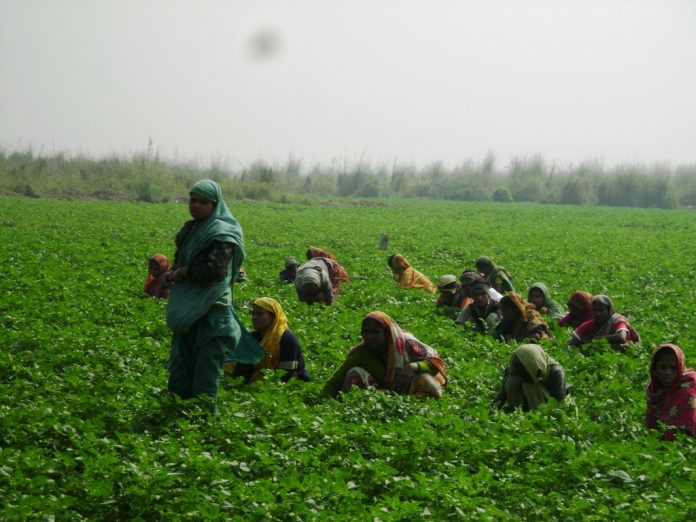In the past decades there have been several cases of tragedies related to the pesticides industries in India:
- The Bhopal gas leak tragedy occurred at a unit which was manufacturing pesticides
- The cancer trains of Punjab
- The most recent tragedy in Maharashtra where nearly 50 farmers died from the use of pesticides along over 1,000 affected with critical ailments.
However in most of these cases the guilty are often not brought to justice, according to experts.
A common outcome is that the farmers suffer while others involved like businesses, farmer leaders, politicians and government officials don’t pay any price.
Archaic Laws Protecting The Guilty
If rumours are to be believed, the inquiry being conducted into the latest tragedy in Maharashtra will indict farmers for the incorrect application of pesticides.
According to the experts, even if the Maharashtra government does take steps to prosecute those actually responsible for the incident it may be frustrated by the archaic provisions of the Insecticides Act, 1968.
The UPA government had introduced a Pesticide Management Bill 2008 in an attempt to rectify the situation , but it was scuttled in Parliament.
Pesticide Manufacturers Need To Be Held Accountable
One of the most important reasons for the continuing large number of farmer suicides but something that is not often talked about, is the sale of misbranded (substandard, spurious, expired) pesticides. Along with uncontrolled use of pesticides, antibiotics in the poultry and dairy industry has been a major reason for environmental damage and human diseases.
The farmer faces immeasurable losses due to failing crops and the costs related to excessive farm inputs which is however not acknowledged. The real profiteers are the manufacturers.
Major pesticide companies (both brand owners and marketing agents) typically outsource the pesticide protection to smaller manufactures. But such producers cannot be prosecuted since the current law only allows the prosecution of the manufacturer.
When the licence is issued to sell pesticides, applicants are required to declare a “responsible person” who is to be held accountable for any violations. This person often a low-level executive , who becomes unreachable over time, making it difficult to even serve the prosecution notice.
The responsible person named in the application therefore needs to be among the top five financial beneficiaries of the pesticide company, and also the fine must be computed as a percentage of the total sales occurring in the state.
Anyone found guilty must get a sentence of a 10-year rigorous jail term. While this may seem draconian, it is not, when compared to the 10-year jail term a person is eligible for in Bihar for selling genuine liquor .
Gaps In Current Rules
- Currently most pesticide samples don’t fail the sample test not just because of colluding officers not following procedures but also due to existing rules.
For a “sample failure” to be legally valid, samples must fail consecutively. The current cumbersome documentation procedure makes it possible for the second sample to expire even before it’s tested, making the entire process invalid. These rules make it difficult to establish the crime.
So far less than 40 pesticide-related convictions in Punjab have taken place in past 10 years.
However the new provisions introduced by the IT Act, 2000 mandating e-documentation for agriculture departments may help expedite the process and increase transparency.
- Under present rules, only a magistrate has the authority to order the suspension of pesticide sales over an evident violation. Given the ease with which court proceedings can be stalled in India, these powers must be delegated to a pesticide inspector, with magistrate’s judicial powers coming into action only when the prosecution starts.
- The pesticide industry like all others incentivises retailers for increased sales, but greater pesticide sales are harming farmers.
- Further, the use of imported, untested pesticides as well as prevalence of unregistered technical procedures may also be the cause for farmer deaths in Maharashtra.
- The recent industry proposal for private laboratories being allowed to perform the central pesticide laboratory’s functions must be rejected. The Central Insecticide Board and Registration Authority must be restructured with many of its powers be transferred to the states.
Few Simple Measures Can Help
Two simple government notifications can greatly ease the dire situation according to industry experts.
- The Centre must make it mandatory for all agriculture-input packaging to possess a bar code that contains product information. This bar code must sync with the GST and the e-way bill. States must mandate that all retailers log their agriculture input sales onto state government servers, which will help traceability from the factory floor to farmer’s field and provide data for regulation enforcement.
A data bank of agriculture input sales will help in multiple ways including evidence-based interventions, better governance and officer promotion evaluation. Such digitization will help personalised and data-driven farm extension as well as realistic crop loss compensation and insurance. Additionally it will enable the accountability of the farmer grievance redressal mechanism.
- The sale of 21 pesticides must be banned In Punjab. However under the existing Act , the state is not allowed to act for its own interests and stop pesticide sales within its own boundaries for more than 60 days.
Hopefully the forthcoming Pesticide Management Bill 2017 will address the many anomalies currently seen in a thoroughly compromised system, that is harming farmers in our country.





